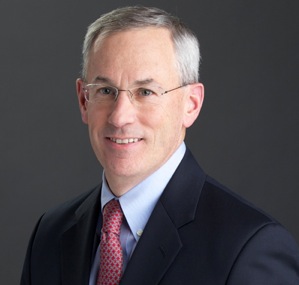Cavan Redmond
CEO, WebMD
2009-2012
Head of Diversified Businesses and Corporate Strategy, Pfizer
1995-2009
Director, int’l pharma marketing to president, consumer healthcare, Wyeth
WebMD’s new chief, Cavan Redmond, brings to the company a keen understanding of the portal’s biggest advertisers as well as its users, patients and professionals alike, having spent more than two decades in pharmaceuticals—most of that time in marketing and consumer healthcare. That expertise could come in handy as he seeks to burnish a tarnished, but still weighty, healthcare media brand
Redmond’s predecessor at WebMD, Wayne Gattinella, left in February after a decade at its helm amid slumping ad revenues, pesky activist investors and an aborted effort to sell the firm to private equity.
Redmond’s roots run deep in tech and pharma. He got started in the drug industry in the early days of computer data analytics. “We were using 8086 computers, the minis,” he says, referring to an early PC—“and we developed a little program to track Teamsters’ wages and benefits as part of an agreement with the Labor Department. That led me quite serendipitously into healthcare, because at the same time, companies were looking to do that for patients, especially in oncology, and I could analyze their data easily using the methodology we’d developed.”
He joined the marketing research department at Sandoz, pre-Novartis, working on cytokine R&D before moving to Basel to serve as therapeutic area head for oncology. “You couldn’t get a better hands-on introduction to R&D, commercial, marketing research and drug development,” he says. He jumped to R&D for a time before moving to American Home Products, née Wyeth, where he worked in global marketing and led the biopharma business unit before taking on consumer healthcare. After Pfizer acquired Wyeth, he was tasked with heading up the diversified (and soon-to-be divested) businesses division.
Redmond didn’t have much interaction with WebMD in his biopharma days but “I did understand the brand and what they were capable of,” he says. “Because if you look at it, there’s no better or more trusted consumer brand than WebMD. If you’re sitting in a doctor’s office and you hear the words ‘cardiovascular disease’ and your husband’s name in the same sentence, when you go home, you’re not just searching the Web for general information, you’re searching with a purpose. You’re trying to find medical information that’s relevant to you and that’s consistent in its high quality, and that’s why WebMD has such a high and loyal user base.”
WebMD is a textbook example of a trusted brand, and trust is golden in the health info game. But there are a lot of competitors looking to horn in on WebMD’s business. WebMD is countering by stepping up its mobile game, with the muscular Medscape Mobile and apps for pain and new parents, and investment in news coverage and other content.
“We’re controlling our content,” says Redmond, “and we believe that’s what’s going to differentiate us from our competitors and differentiate our advertisers who are looking to expand their audience.”
A “middle-distance runner” of half-marathons, Redmond takes the long view. He sees Medscape’s architecture, with its 30 verticals, as advantageous amid the shift to specialty (on the consumer side, WebMD boasts 165 “Health Centers,” including condition-specific subsites for many maladies).
The firm is expanding into Europe with a global headquarters and a market-specific German version of Medscape (Medscape.com and TheHeart.org are available in English, Spanish, French and German) and is looking at opportunities in Latin America and Asia.
And that sale? “It’s not where we’re going right now,” he says. “I came to WebMD because I believed that we could build a long-term, sustainable brand and provide value to shareholders. How we execute on that is paramount, but the assets are there to do that.”
From the August 01, 2012 Issue of MM+M - Medical Marketing and Media








